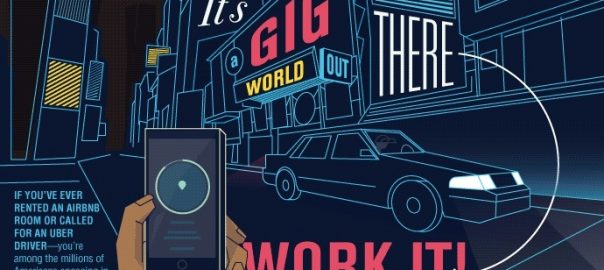As an employer, is it better to have employees or independent contractors? There are plenty of businesses out there making it big while relying mostly on independent contractors. Uber has become the fastest growing startup in history, recently ballooning to over $ 60 billion in 5 years, by using independent contractors to provide their services. There are pros and cons to using independent contractors, however. It’s not always easy to decide which route to go.
From the contractor’s point of view, working in the “gig economy” could break you free of the 9-5 grind. You get the ultimate freedom of setting your own schedule and only working when you want to. The flip side of that is you may not make as much money if you aren’t working at peak times. Nonetheless, 71% of those working in the gig economy say they have had positive experiences, though 58% did admit they think employers are exploiting loopholes due to lack of industry regulation. And gigs don’t provide the same benefits as regular employment- kiss your insurance premiums and retirement savings goodbye.
There are pros and cons for companies taking advantage of the gig economy as well. Companies can save money on training, payroll taxes, health insurance premiums, and office space. But you’re giving up control over how and when your contractors work, and you could possibly face legal issues if you misclassify your employees.
Even if you start off with contractors, many companies are finding they need to transition to a more traditional business model. Startups such as Luxe, Managed by Q, and Shyp all started out using independent contractors but found using employees was more stable and reliable.
Learn more about the gig economy and whether it can work for your business from this infographic. You might be surprised how big the gig economy has become!

Infographic Courtesy of Self Storage
(71)
Report Post





